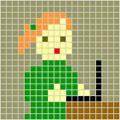Cited By
View all- Galvão-Ferreira PFearns VNunes NNisi V(2024)Posthumanist Care and Ecologies of Empathy: Investigating Design Potentials for Nature:Culture HCIProceedings of the 27th International Academic Mindtrek Conference10.1145/3681716.3681731(81-94)Online publication date: 8-Oct-2024
- Offerman CBourgeois JBozzon A(2024)Embedding caring into remote patient management systemsProceedings of the 13th Nordic Conference on Human-Computer Interaction10.1145/3679318.3685399(1-13)Online publication date: 13-Oct-2024
- Wilson CPschetz LDixon BLewis SRevans JVines J(2024)Creating Resources for Designing with and for Care Ecologies in HCIProceedings of the 2024 ACM Designing Interactive Systems Conference10.1145/3643834.3660709(3161-3178)Online publication date: 1-Jul-2024
- Show More Cited By



